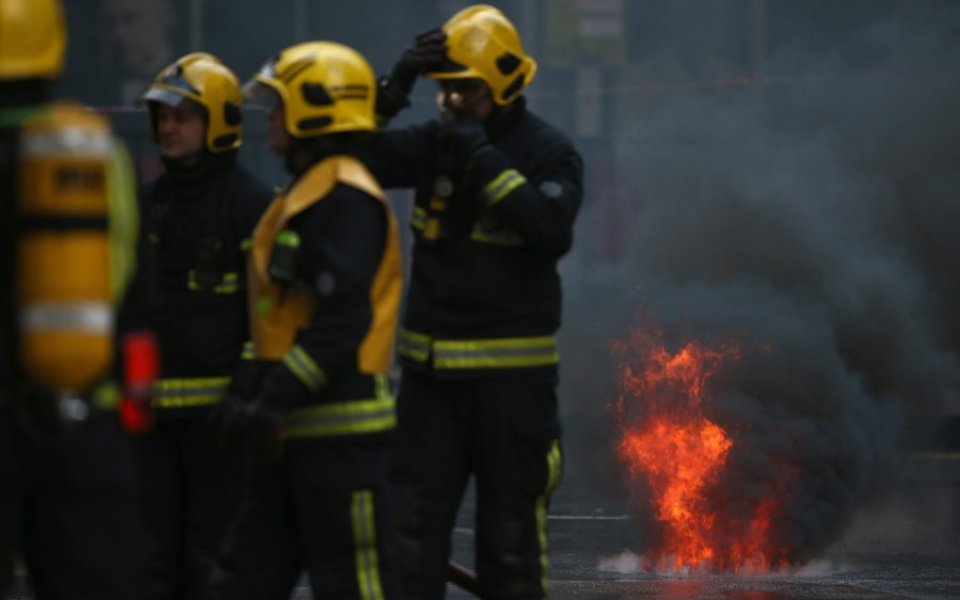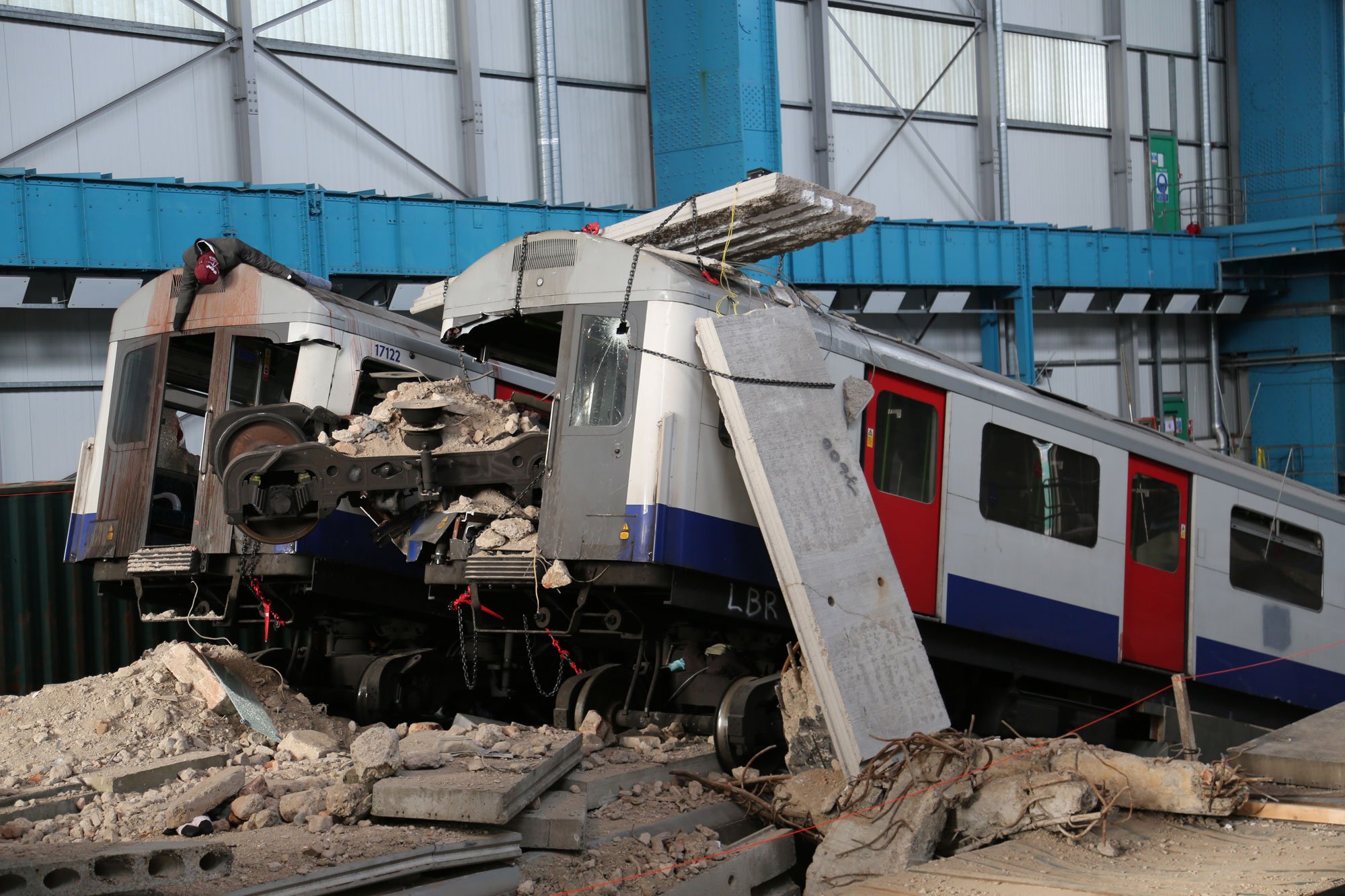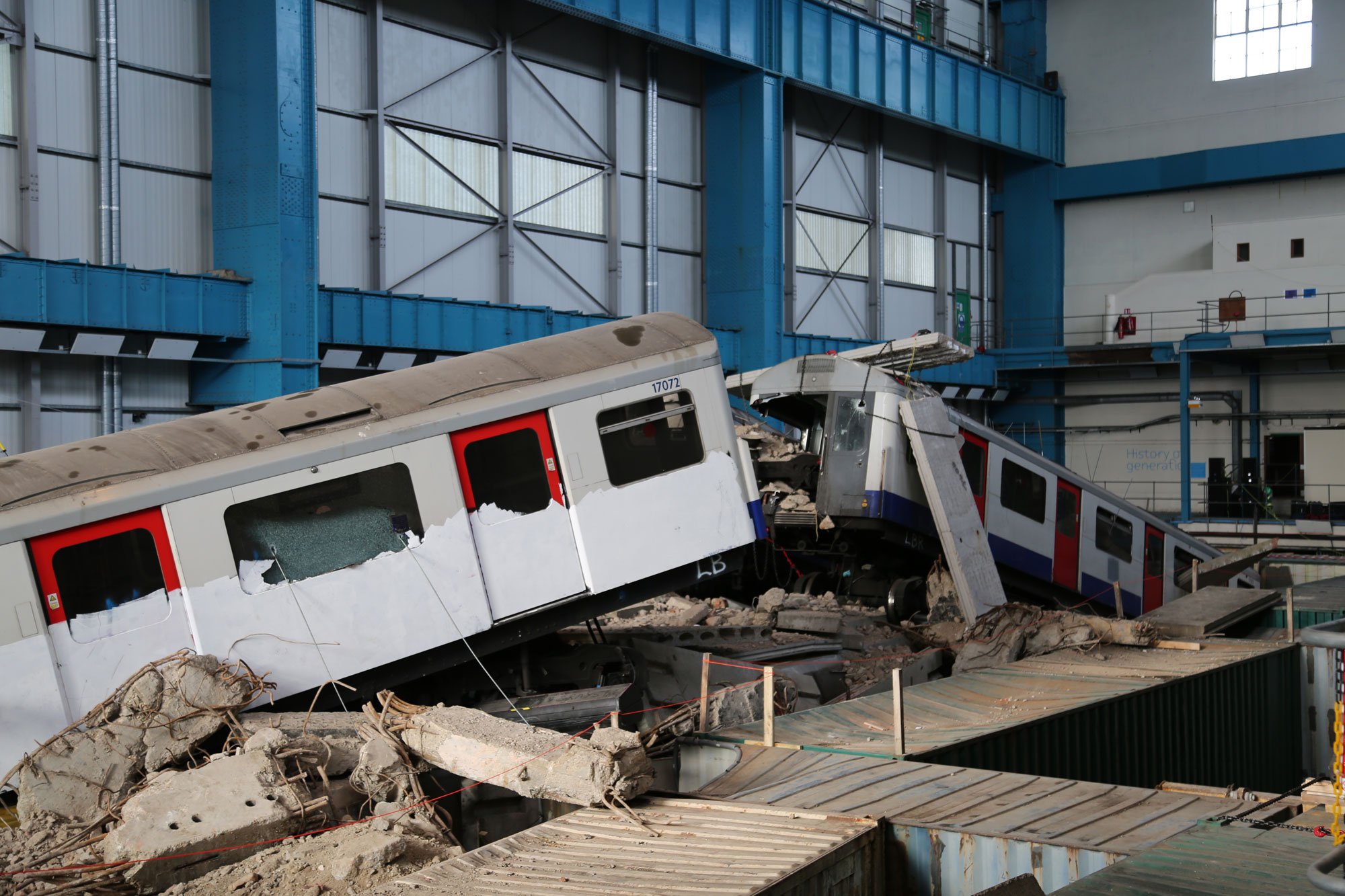Unified Response: London police, ambulance and fire crews test UK’s biggest ever multi-agency disaster training exercise as tower “collapses” into Waterloo Tube station

London's emergency services are taking part in the biggest training exercise in London Fire Brigade's 150-year history, to see if the various agencies can cope in the wake of a major disaster.
Metropolitan Police, London Ambulance and NHS England London are among the agencies taking part in the exercise, which is being coordinated by the London Fire Brigade.
The scenario, which will run from today (29 February) until Thursday (3 March), will be based on a "significant building collapse" onto a Tube station – a simulation of Waterloo – which will incorporate "heavy transport and mass casualties" – more than 1,000 people.

In order to create the most realistic environment possible, an entire Tube station has been recreated and then "crushed" in a disused power station close to the Dartford river crossing.

All agencies are ready ahead of the off for #UnifiedResponse at 10am… #disastertraining pic.twitter.com/o4gwLKWyRJ
— Samuel Edwards (@samie_edwards) February 29, 2016
Casualties heading in and waiting for #UnifiedResponse to start pic.twitter.com/xr6mlSv8Gv
— London Ambulance Service (@Ldn_Ambulance) February 29, 2016
Is anyone coming #UnifiedResponse @LAS_HART @LAS_JRU pic.twitter.com/2kghOJ9cUB
— PD (@paul9139) February 29, 2016
Chilling sounds of 'passengers' trapped at #UnifiedResponse exercise. Incredibly realistic https://t.co/ruQt7V1bJx pic.twitter.com/e4GnwYpfdj
— London Fire Brigade (@LondonFire) February 29, 2016
The exercise is being conducted at four separate venues in central and south east London, as well as Dartford.
It is being organised as part of the London Assembly's resilience partnership strategy, to test the capital's ability to "detect, prevent and if necessary to withstand, handle and recover from disruptive challenges".
https://twitter.com/CottonDany/status/704242707896647681
The Exercise Unified Response (EUR) has been more than a year in the planning, and hundreds of emergency responders involved will have to cope with more than 1,000 casualties, thousands of tonnes of rubble and seven tube carriages.
London Fire commissioner Ron Dobson, said: “Exercises of this scale are important to ensure that we are always ready to respond no matter what happens. You can’t get this sort of experience from a text book, we need to play it like it’s real and ensure that should the worst happen, our response is effective and well coordinated.
The largest disaster training exercise in the 150-year history of @LondonFire begins today https://t.co/kGu8fbrlDg #UnifiedResponse
— Cornwall Fire and Rescue Service (@CornwallFRS) February 29, 2016
"An incident of this size affects everyone from thousands of stranded commuters who can’t get home, to distraught relatives who can’t reach loved ones and we are working with TfL, local councils and various voluntary organisations to simulate the wider and longer term impacts that any major disaster would have on the community."
Although the scenario is not a terrorist attack, crews will practise procedures and systems that are "common to any emergency that results in a large number of fatalities and injuries" – replicating some of the consequences of the 7/7 bombings.
Exercises of these kinds aren't cheap: more than £1m has been donated by partners including TfL – which provided the Tube train carriages and other props – while McGee Demolition Group donated thousands of tonnes of rubble and machinery and RWE npower provided Littlebrook as a venue free of charge.
The European Commission funded the exercise to practise the civil protection mechanism, which exists so that any European state can request assistance from other EU countries in preparation for or in the aftermath of a disaster.
As well as London's emergency response organisations – including local and national authorities – this week's challenge will include specialised teams from across the UK and from Hungary, Italy and Cyprus.